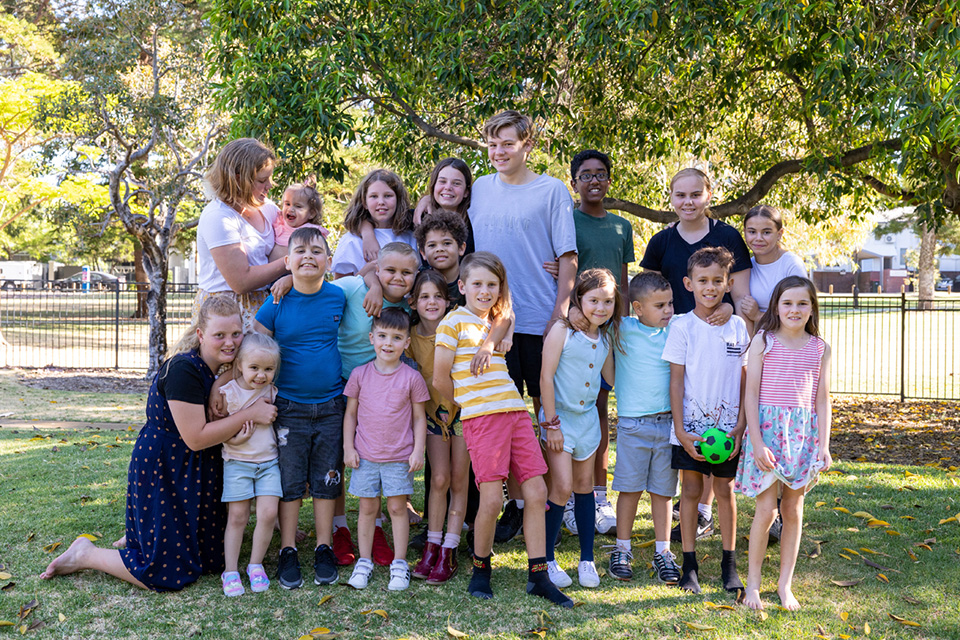Search
News & Events
Toddler TalkA child's ability to communicate is one of their most important developmental achievements. It builds a foundation for everything that is to come.
Research
Influences of bilingual input on English vocabulary size and academic outcomes: a large-scale longitudinal study following children in Australia from five to ten yearsResearch from large population-based studies investigating the language and academic outcomes for bilingual children is rare. The current study aimed to investigate the influence of dual language exposure on (i) English vocabulary outcomes at 5 years (126 bilinguals, 1675 monolinguals), and 10 years (vocabulary: 92 bilinguals, 1413 monolinguals:), and (ii) academic outcomes at 10 years (107 bilinguals, 1746 monolinguals).
Research
Language DevelopmentLanguage is one of the most remarkable developmental accomplishments of early childhood. Language connects us with others and is an essential tool for literacy, education, employment and lifelong learning.

The Human Development and Community Wellbeing (HDCW) Team focuses on improving outcomes for children, family, and the community.
Research
Online Health Literacy Resources for People With Intellectual Disability: A Grey Literature Scoping ReviewPeople with intellectual disability experience higher rates of physical and mental health problems than those without intellectual disability. Health literacy includes accessing, understanding, appraising and applying health information. Improving health literacy is associated with better health outcomes. The internet is a primary source of health information for many people. This study aimed to evaluate available online health resources for people with intellectual disability and their families to understand information gaps.
Research
Centralising Local Aboriginal Language and Culture in Healthy Skin Books on the See Treat Prevent (SToP) Trial in the Kimberley Region of Western Australia: A Process and Impact InquiryLanguage is significant for communicating knowledge across cultures and generations and has the power to attribute meanings and alter our worldviews.
Research
Online health literacy resources for people with intellectual disability: protocol for a grey literature scoping reviewPeople with intellectual disability are at risk of poor physical and mental health. Risks to health are compounded by poor health literacy, that is, reduced capacity to access health services, respond quickly to changes in health status and navigate care pathways. Building health literacy skills is a strength-based way to increase health and optimise the use of healthcare services. The internet is a primary source of health information for many people, including people with intellectual disability and their families.
Research
Parent-reported outcome measures evaluating communication in individuals with rare neurodevelopmental disorders: A systematic reviewCommunication impairments are a leading concern for parent caregivers of individuals with rare neurodevelopmental disorders. Clinical trials of disease modifying therapies require valid and responsive outcome measures that are relevant to individuals with RNDDs. Identifying and evaluating current psychometric properties for communication measures is a critical step towards the selection and use of appropriate instruments.
Research
Screen Time and Parent-Child Talk When Children Are Aged 12 to 36 MonthsGrowing up in a language-rich home environment is important for children's language development in the early years. The concept of "technoference" (technology-based interference) suggests that screen time may be interfering with opportunities for talk and interactions between parent and child; however, limited longitudinal evidence exists exploring this association.
Research
Communication of individuals with CDKL5 deficiency disorder as observed by caregivers: A descriptive qualitative studyCDKL5 deficiency disorder (CDD) is a genetically caused developmental epileptic encephalopathy that causes severe communication impairments. Communication of individuals with CDD is not well understood in the literature and currently available measures are not well validated in this population. Accurate and sensitive measurement of the communication of individuals with CDD is important for understanding this condition, clinical practice, and upcoming interventional trials.
